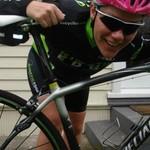
Ride to your potential
Potential: (n.) a latent excellence or ability that may or may not be developed; (adj.) capable of being or becoming
What is your potential? Essentially it is your latent capability of excellence that is yet to be developed. Everyone has room for improvement and everyone is capable of achieving their goals. Your potential could be finishing Taupo, it could be doing a better time than last year, winning a race or beating you training partner up a hill. It could be anything. The point is, we all have potential, and we never realise it, unless we go about the process of finding out. But what is that process?
There are three distinct methods that together will help you achieve your potential:
1. Puzzles;
2. Comfort; and
3. Habits.
You won’t find these training terms in any cycling training manuals in your local bookstore. Those manuals concentrate on physical methods. But we aren’t machines that are programmable with methods set exactly like a book or the computer I am typing this on. Instead, we are fallible humans prone to unconscious habit forming, perceptions of our ability (or lack thereof), expectations, and unknown limitations, or unknown potential.
‘Self Confidence is very important. First we must bear in mind that we are equal to all human beings, and that we have the same potential. If we remain pessimistic, thinking that we can’t succeed, then we aren’t able to evolve. The thought that we cannot compete with others, is the first step toward failure.’ – The Dalai Lama
Puzzles
Every person is a puzzle, with different puzzle pieces and training needs. One size does not fit all, just like a square peg won’t fit in a round hole. We don’t know what the final picture (or potential) is unless we find the pieces of the puzzle. How do we do this?
∑ Thorough investigation of what a rider is good at, and what they are not so good at;
∑ Learning how they go about doing each of these things;
∑ Finding out what their underlying physiology is, and how it relates to their performance;
∑ Identifying what is ideal to them and distinguishing what is unique to them.
Then with the puzzle pieces we put the picture together. By way of an example, recently I had a rider come to me who had hit a plateau in her performance: she had simply stopped improving. So I set out to find out why, checking her training history and technique, and getting her to do a range of physiological and performance tests. While her training was good, her iron tests came back with a shock. It was dramatically low, and explained a lot. On increasing her iron, her performance lifted almost immediately.
Comfort
The second step involves getting out of your comfort zone. True coaches do this with supportive encouragement, as they are teachers of change. This is not only in training, but in your perception of your ability, in your limitations, in your technique, in everything you do to achieve your goals. Former BikeNZ HP Director Michael Flynn once said to me, ‘When you learn how to get out of your comfort zone, you will be able to teach your riders to do so as well.’ He must have seen me holding my breath – an intuitive guy.
So I quit my job at the University of Auckland, where I had been working as an exercise physiologist, and took off back-packing by myself around Europe for 6 months. Be gone with the comfort zone! And it was through 17 countries, it was every emotion, all at the same time. It was exactly what I needed to develop as a person and as a coach.
You need to challenge yourself with your riding to go that step further, just as I have to become a coach. Otherwise you can become boring and stale, and won’t be able to improve. So try a different training route, a different group to ride with, or a different approach towards a race or event. Think seriously about getting a coach who can facilitate change and provide you with support in achieving your goals.
Every week you need to do something different. Every week you need to give your mind and body variety, so that no matter where you race or ride, who you race against or on what course, you are used to change. No more ‘same old, same old.’ Get used to moving out of your comfort zone: believe me it’s worth it!
Habits
Aristotle said, ‘We are what we repeatedly do.’ So to ride to your potential, or excel to the utmost of your ability, you need to make what you repeatedly do quality, or a habit. Training slowly means that you will race slowly.
Training to the best of your ability is essential because when you are under pressure in an event or race you will fall back to your habits. If your habits are good, your performance will be equally good when under pressure.
The first thing to do is therefore to find out what the optimal habit or training methods is for you. Do your research, analyse what you need to improve on, get a coach and make your habits those of excellence.
Amy Taylor is an Auckland-based cycling coach and exercise physiologist. Amy and fellow coach Aaron Strong coach beginner to elite riders helping them ride to their maximum potential. Contact them directly by phoning 09 631 5436 or via email amy@kecycling.com or aaron@kecycling.com
